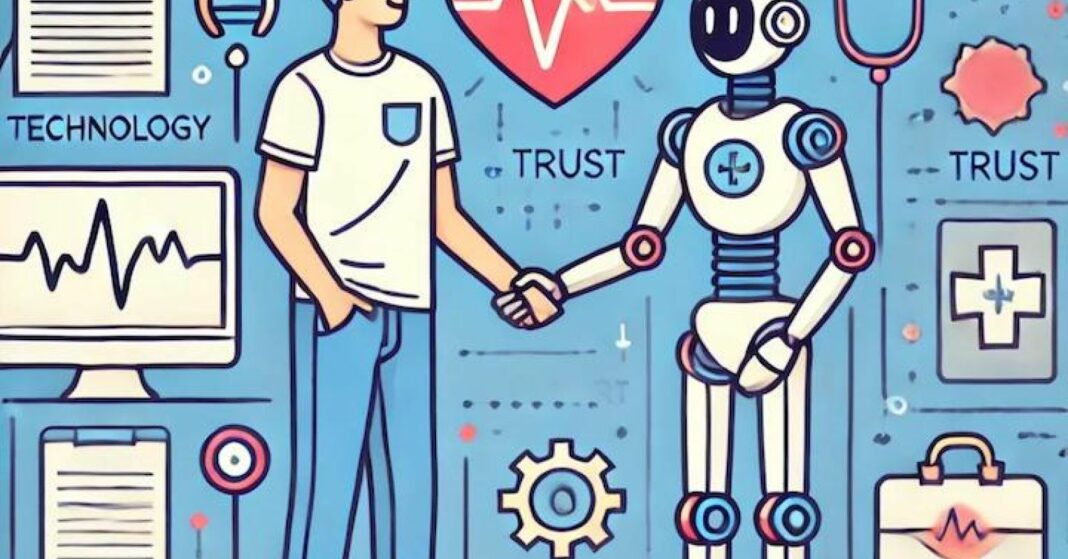Trust Me, I’m an AI Doctor
In recent years, artificial intelligence (AI) has made significant advancements in various industries, including healthcare. One area where AI is making a big impact is in the field of medicine, with AI doctors now playing a crucial role in providing accurate diagnoses, treatment recommendations, and even personalized healthcare solutions.
The Rise of AI Doctors
AI doctors are computer programs that have been trained to analyze large amounts of data, such as medical records, research studies, and patient symptoms, to provide accurate and timely diagnoses. These AI doctors use algorithms and machine learning techniques to continuously learn and improve their decision-making abilities.
Benefits of AI Doctors
One of the key benefits of AI doctors is their ability to process and analyze vast amounts of healthcare data much faster and more accurately than human doctors. This can lead to quicker diagnoses and more effective treatment plans, ultimately improving patient outcomes. AI doctors can also help reduce medical errors and improve overall healthcare efficiency.
Accuracy and Precision
AI doctors are programmed to make decisions based on evidence and data, which can lead to more accurate and precise diagnoses. They can also analyze genetic information and other personalized data to provide tailored treatment recommendations for individual patients.
24/7 Availability
Unlike human doctors who have limited working hours, AI doctors can be accessed 24/7, providing timely healthcare advice and support to patients whenever they need it. This can be especially beneficial for individuals in remote areas or those with limited access to healthcare facilities.
Cost-Effective Healthcare
AI doctors can help streamline healthcare processes and reduce the need for costly and time-consuming procedures, ultimately leading to more cost-effective healthcare solutions. This can make healthcare more accessible and affordable for a wider range of people.
Challenges and Limitations
While AI doctors have many advantages, there are also challenges and limitations that need to be addressed. One of the main concerns is the potential for bias in AI algorithms, which can lead to inaccurate diagnoses or treatment recommendations. Ensuring that AI doctors are trained on diverse and unbiased datasets is crucial for mitigating this risk.
Ethical Considerations
There are also ethical considerations surrounding the use of AI doctors, such as patient privacy, data security, and the potential for AI to replace human doctors entirely. It is important to strike a balance between the benefits of AI technology and the need for human oversight and empathy in healthcare.
Regulatory Framework
Another challenge is the lack of a standardized regulatory framework for AI doctors, which can lead to varying levels of quality and safety across different AI systems. Establishing clear guidelines and regulations for the development and use of AI doctors is essential for ensuring patient safety and quality of care.
Conclusion
Trust Me, I’m an AI Doctor. In conclusion, AI doctors have the potential to revolutionize the field of healthcare by providing faster, more accurate, and personalized medical diagnoses and treatments. While there are challenges and limitations that need to be addressed, the benefits of AI doctors far outweigh the risks. With the right regulations and ethical considerations in place, AI doctors can enhance patient care and improve healthcare outcomes for individuals around the world.
FAQs
1. Are AI doctors replacing human doctors?
No, AI doctors are designed to assist human doctors in making more informed decisions and providing better healthcare outcomes. Human oversight and empathy are still essential in healthcare.
2. How secure is the data used by AI doctors?
AI doctors are designed to prioritize patient privacy and data security. Measures are in place to protect sensitive medical information and ensure compliance with relevant data protection laws.
3. Can AI doctors work in all areas of healthcare?
AI doctors can be trained to work in various medical specialties, but their effectiveness may vary depending on the complexity of the diagnosis and treatment required. Collaborating with human doctors is often recommended for more challenging cases.




